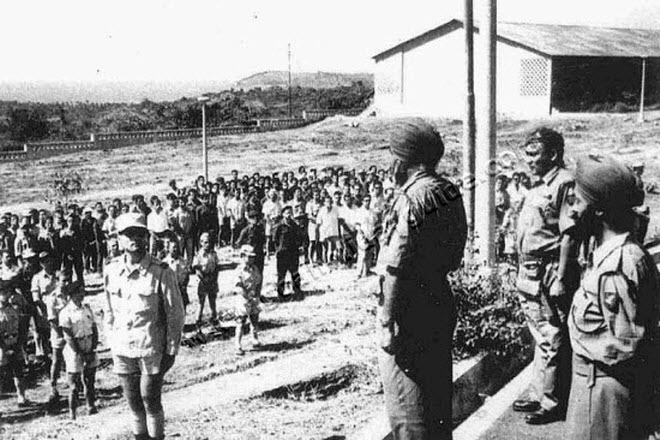- Goa’s liberation: On December 19, 1961, India successfully seized Goa, bringing an end to years of Portuguese colonial control.
- Prime Minister Narendra Modi has accused former Prime Minister Jawaharlal Nehru of failing to assist Goan satyagrahis and postponing military action.
A Historical Overview of Goa’s Colonisation
- Portuguese Rule: Admiral Afonso de Albuquerque established Goa as a Portuguese colony in 1510.
- Long Colonial Encounter: For more than four centuries, Goa was at the centre of regional and global power battles, resulting in a distinct Goan identity.
- Nationalist feeling: During the early twentieth century, nationalist feeling against Portuguese rule rose, paralleling India’s anti-British agitation.
Beginning of the Freedom Movement
- Goan Nationalism: Tristao de Braganza Cunha, hailed as the father of Goan nationalism, founded the Goa National Congress in 1928.
- Lohia’s Influence: In 1946, Ram Manohar Lohia’s rally in Goa galvanized the freedom movement, advocating civil liberties and integration with India.
- Armed Resistance: Groups like the Azad Gomantak Dal (AGD) advocated for an armed struggle for liberation.
- The start of the Freedom Movement
- Tristao de Braganza Cunha, known as the “Father of Goan Nationalism,” formed the Goa National Congress in 1928.
- Lohia’s Impact: Ram Manohar Lohia’s demonstration in Goa in 1946 galvanised the freedom movement, promoting civil freedoms and Indian unification.
- Armed Resistance: Organisations such as the Azad Gomantak Dal (AGD) campaigned for an armed struggle for independence.
Goa’s Annexation: Recognition and Legal Status
- Recognition by the Supreme Court: The Supreme Court of India upheld the annexation, ruling that the law of occupation did not apply.
- Portugal’s Recognition: Through a retroactive treaty, Portugal recognised Indian sovereignty over Goa in 1974.
- International Law: Forceful annexations after the UN Charter are forbidden under jus cogens, although Goa’s annexation is an exception.
Why did Goa remain under Portuguese rule after 1947?
- Nehru’s Peace Image: To maintain his global peace leader image, Nehru avoided military action.
- The Aftermath of Partition: The agony of Partition and the Indo-Pak conflict diverted India’s attention.
- Concerns regarding internationalisation: There were concerns about internationalising the issue.
- Lack of Internal Demand: Gandhi argued that more groundwork was required to unite Goa’s different political views.
Nehru’s Dilemma and Military Action Delay
- Nehru prioritised India’s international position and exhausted diplomatic possibilities.
- NATO Strategy for Portugal: Goa was reclassified by Portugal in order to be protected by NATO.
- Indigenous Liberation Movements: Nehru juggled diplomatic efforts with support for indigenous liberation movements.
Factors Contributing to the 1961 Military Offensive
- Portuguese Aggression: Following the 1955 shooting on Satyagraha, India severed ties with Portugal.
- India’s Decolonization Leadership: India’s participation in global anti-colonial movements increased pressure on Goa to be liberated.
- Criticism from African Nations: African criticism during a 1961 symposium emphasised the need to eliminate Portuguese colonialism.
- Decisive Military Action: These elements resulted in Operation Vijay, a two-day military campaign that liberated Goa.
@the end
- The end of Portuguese colonialism in India was signified by the annexation.
- Historical Importance: The liberation of Goa remains a watershed moment in India’s struggle against colonialism and the union of its territory.
Source: https://static.mygov.in/indiancc/2022/07/mygov-10000000001846301230.pdf

